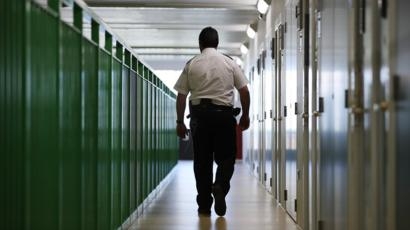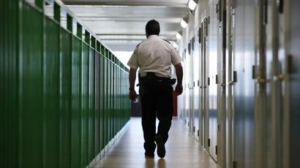Public Defender Publishes Report on Violence in Prisons
There is no violence-free environment in the Georgian penitentiary establishments. This is proven by physical and psychological violence among inmates, criminal subcultures, and lengthy and often inappropriate use of solitary confinement, to name a few, - reads the report released by the Public Defender following monitoring in Georgia's penitentiary establishments.
The Special Preventive Group of the Public Defender of Georgia conducted monitoring in penitentiary establishments N2, N8, N14 and N15 in July and August 2019. Visits were made to the largest semi-open and closed facilities.
The systemic and characteristic aspects of each institution were analyzed in a complex manner, based on the information obtained during monitoring. One of the main focuses of the monitoring was to examine the extent and forms of informal governance in the institutions, as it poses a serious threat to prisoners’ ill-treatment, which leads to violence and oppression.
“The institutions are overcrowded and there is a shortage of staff, which tempts the administration to delegate the functions of conflict resolution and “keeping order” to informal rulers. The establishments, where the impact of informal governance is high, are characterized by physical and severe psychological violence among prisoners. Psychological violence is mainly manifested in extortion, humiliation, marginalization and other violent acts.
"A criminal subculture is particularly prevalent in semi-open establishments, where informal rulers are privileged and force other prisoners to obey informal rules. It was found that prisoners are not properly aware of their rights and responsibilities and refuse to exercise their right to complain due to the influence of said criminal subculture and fear of repression.
"Prisoners, with only a few exceptions, do not speak about physical abuse by prison staff: they mainly talk about psychological violence and unethical behaviour,” reads the report.
The report further emphasizes the inadequate practice of lengthy punitive placement of inmates in de-escalation rooms, which is described by the Public Defender as “cruel, inhuman and degrading treatment.”
The Special Penitentiary Service largely agrees with the recommendations of the Public Defender and aims to transform the large penitentiary institutions into relatively small ones so as to improve the situation. The Public Defender welcomes the idea of transforming institutions, as long as the goal is to develop a system focused on positive changes in the behavior of convicts, their rehabilitation and their ultimate reintegration into society.












